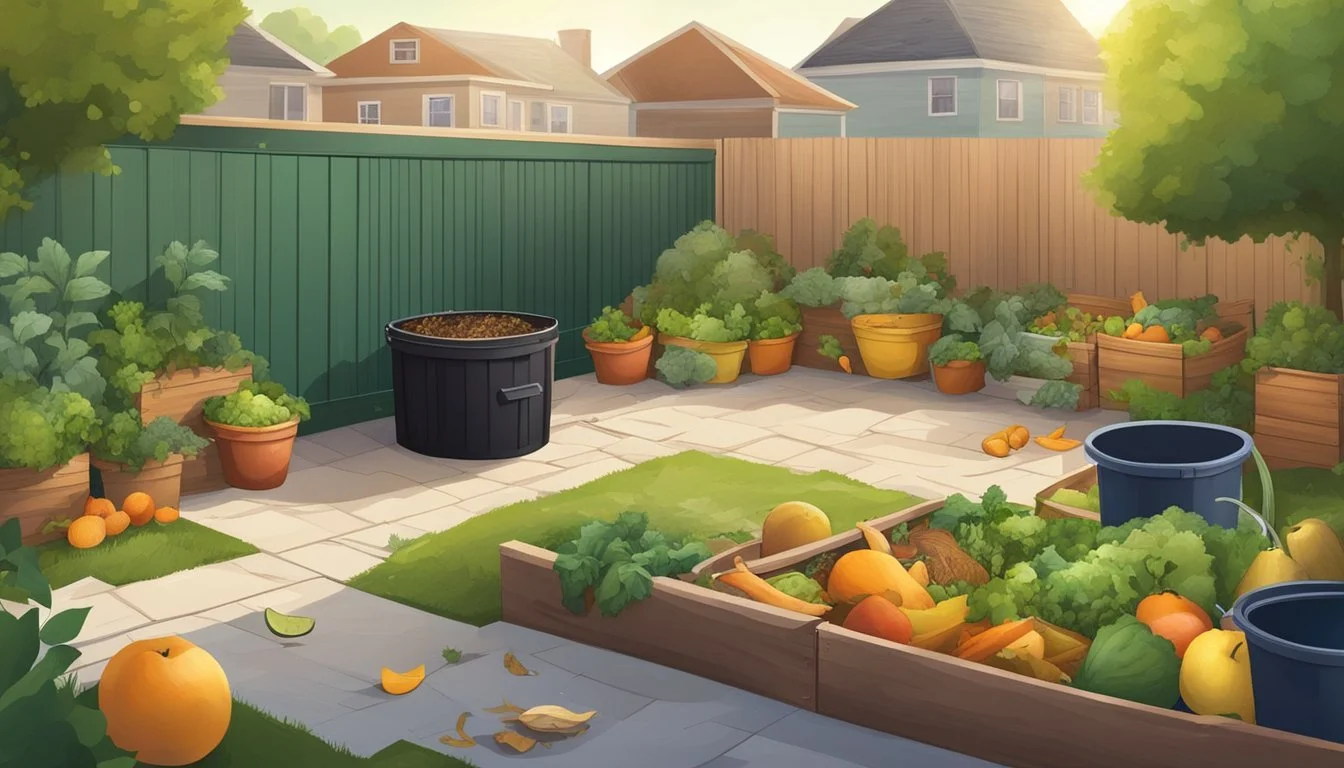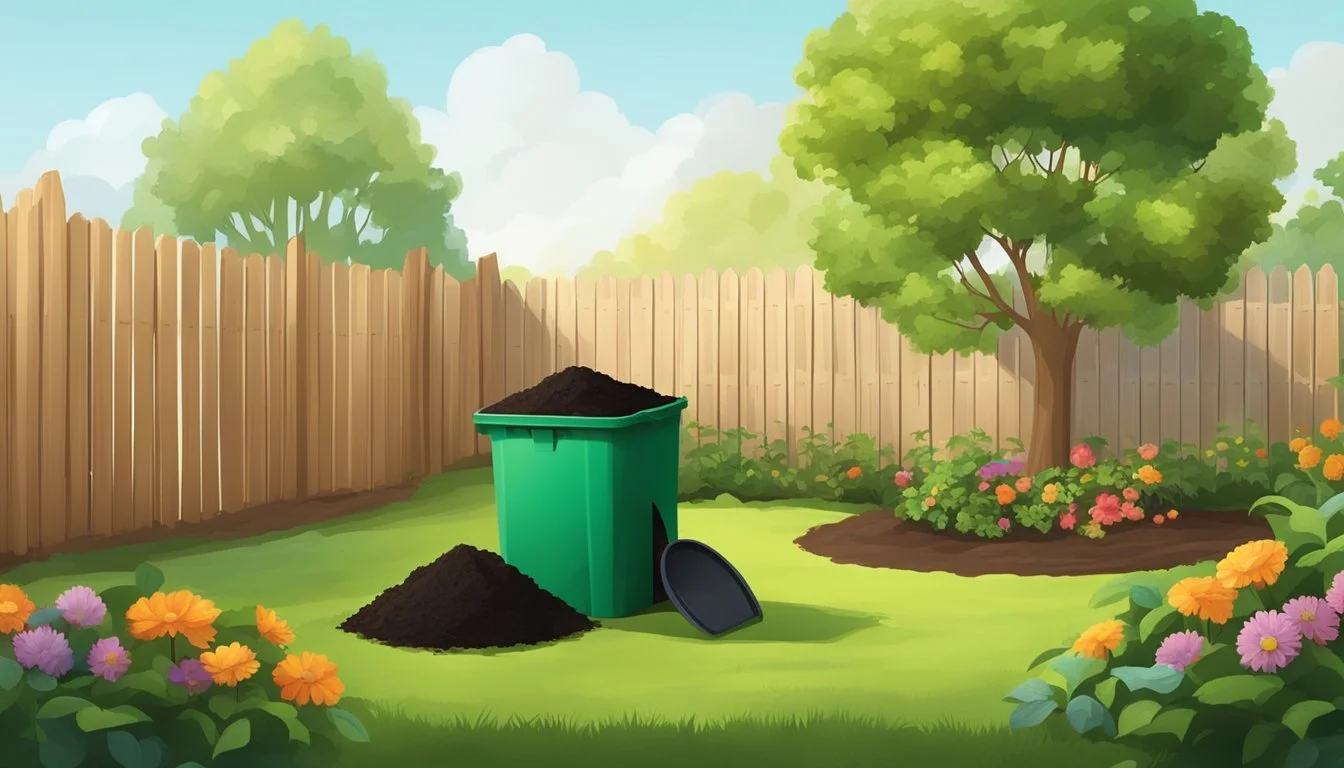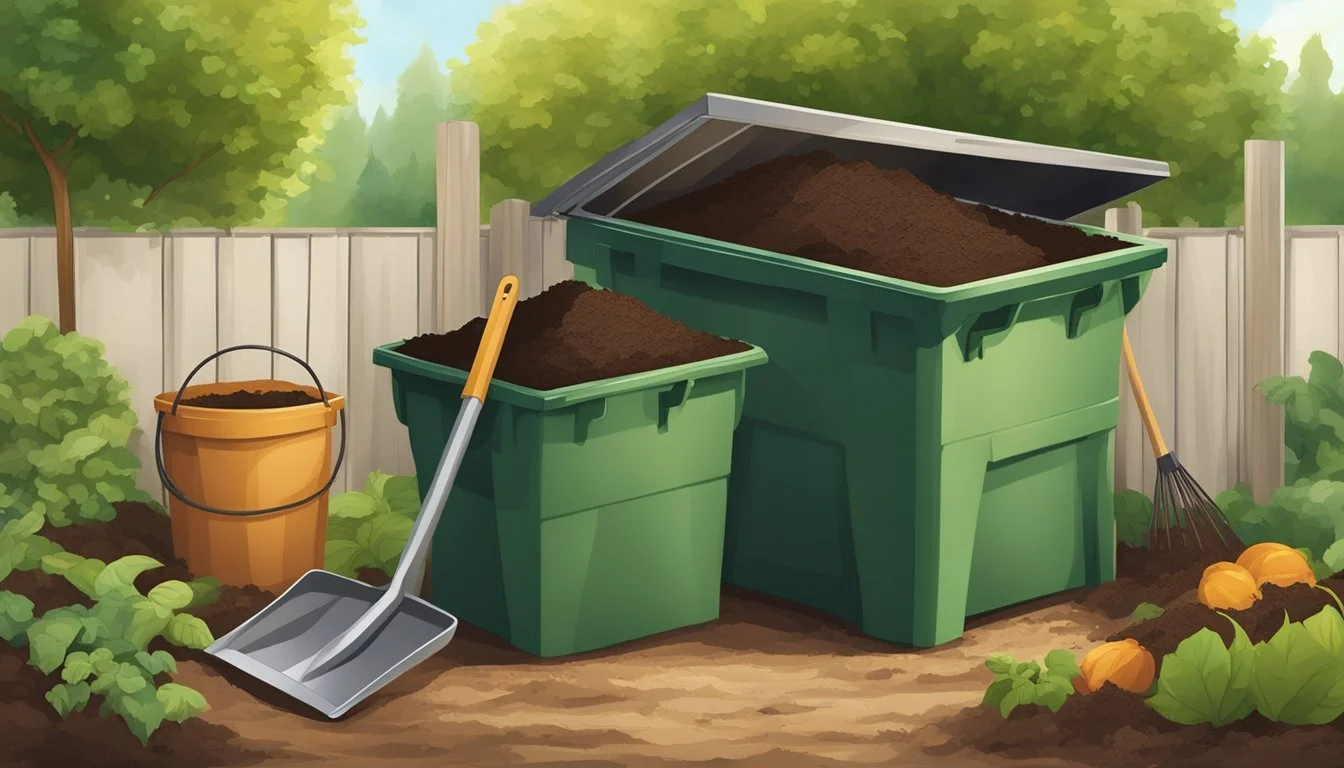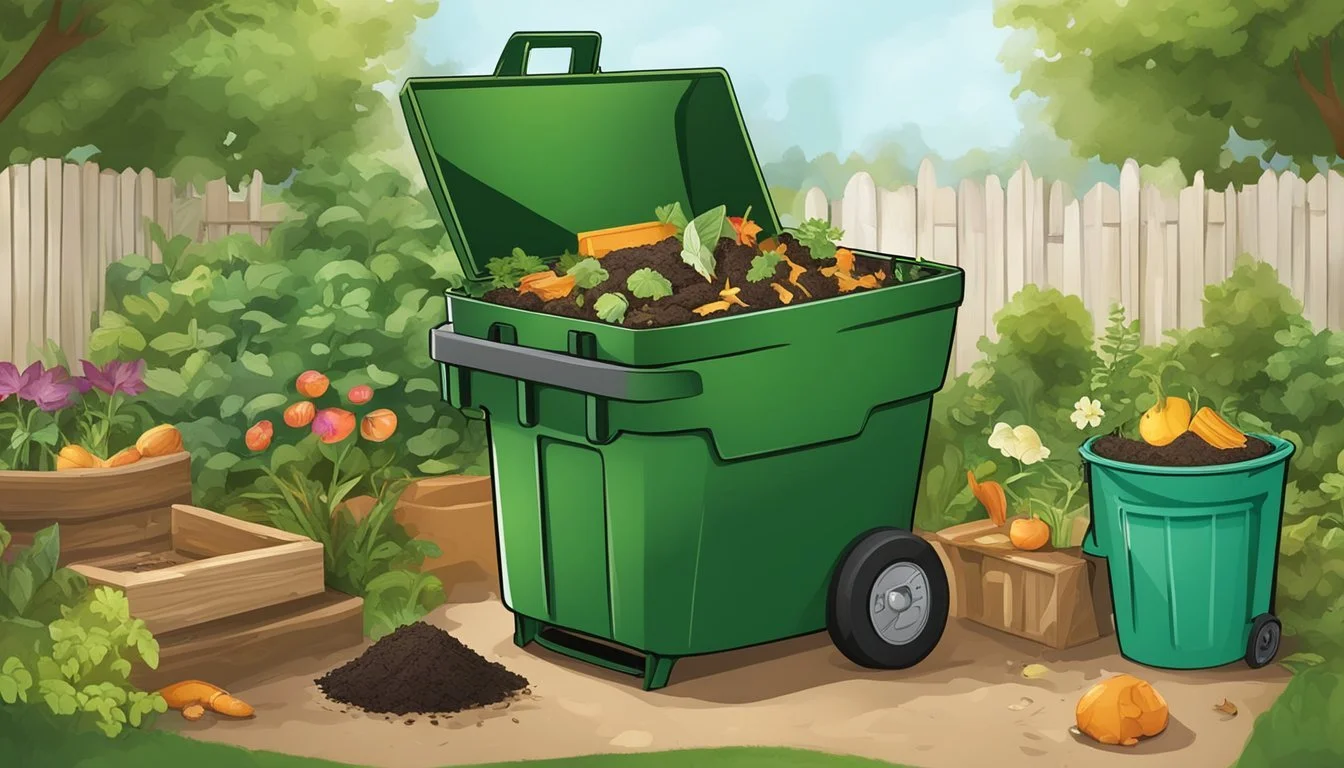Guide to Composting in Carmel, IN
Essential Tips for Local Homeowners
Composting is an effective method to enhance soil quality and promote sustainable waste management practices in Carmel, Indiana. This natural process involves the decomposition of organic matter, such as yard debris and kitchen scraps, into a rich soil amendment known as compost. The resulting material is crumbly, packed with essential nutrients, and serves to improve soil structure, moisture retention, and plant growth. Residents of Carmel can engage in composting to reduce landfill waste, cut greenhouse gas emissions, and contribute to a healthier environment by turning everyday waste into valuable compost for their gardens and landscapes.
Getting started with composting in Carmel is relatively straightforward. Homeowners are encouraged to combine green waste, which is rich in nitrogen, with brown waste that provides carbon, in a balanced compost pile. Green waste includes items like fruit and vegetable scraps, coffee grounds, and grass clippings, while brown waste encompasses materials such as leaves, shredded paper, and cardboard. This mix of green and brown materials, when managed properly, breaks down over time due to the activity of microorganisms, resulting in a nutrient-filled soil conditioner suitable for use in a variety of gardening applications.
Understanding the specifics of the composting process is crucial for success. It involves maintaining adequate moisture, ensuring proper aeration, and managing the pile's temperature. The City of Carmel offers resources and guidelines to assist residents in setting up and maintaining a compost system. For those not inclined to compost at home, local services are available to make composting convenient and accessible for all community members.
The Basics of Composting
Composting in Carmel, IN, is a simple yet impactful way to convert waste into valuable organic matter, enriching soil and aiding environmental conservation.
What Is Composting?
Composting is the natural process of decomposition wherein organic matter such as leaves, vegetable scraps, and other plant-based materials break down over time. This controlled breakdown occurs thanks to the activity of microorganisms, such as bacteria and fungi, which convert the material into compost, a nutrient-rich soil amendment. Proper composting practices help to manage waste effectively and reduce greenhouse gas emissions by diverting organic materials from landfills.
Benefits of Composting
Composting provides a multitude of benefits for both the environment and garden enthusiasts in Carmel. It facilitates waste reduction by converting food scraps and yard waste into beneficial compost. This activity helps to curb the release of methane, a potent greenhouse gas, by avoiding the decomposition of organic materials in oxygen-deprived landfills. Furthermore, the resulting compost is a powerful soil enhancer, delivering essential nutrients to gardens and landscapes. By enriching the soil with compost, one can improve its structure, water retention, and overall health, promoting healthier plant growth and restoring balance in the local ecosystem.
Setting Up Your Compost Area
Creating a compost area in Carmel, IN, requires thoughtful planning in location choice and understanding the types of compost bins. Ensuring an optimal setup from the start facilitates an efficient composting process.
Choosing a Location
The ideal location in Carmel for a compost area is an outdoor space that's both accessible and has good drainage. It should be a flat, dry spot that receives partial sunlight, as full sun can dry out the pile and full shade can slow decomposition. For residents with limited space, such as a patio or balcony, locating a smaller container suitable for composting within that area is key.
Types of Compost Bins
There is a variety of compost bins available for Carmel residents depending on their needs:
Stationary bins are durable and ideal for large garden areas.
Tumbling bins expedite composting and are perfect for quick turnover.
Worm bins are suitable for indoor use or small outdoor spaces such as patios.
One should consider the available space, the amount of organic waste generated, and how actively they want to manage their compost.
Building Your Own Compost Bin
For those preferring a DIY approach, building a compost bin can be a rewarding project. One will need materials like wire mesh, untreated wood, or even old pallets. The size of the bin should cater to the volume of compostable material while keeping in mind the space constraints of the chosen location. It's important to allow for proper air circulation and easy access to turn the pile.
Compost Ingredients and Balancing
When creating compost in Carmel, Indiana, residents must understand the importance of balancing green and brown materials. Green materials, such as vegetable scraps, are high in nitrogen and bring moisture to the compost, while brown materials like dry leaves offer a high carbon content and help to maintain aeration in the pile.
A successful compost balance generally follows the ratio of:
2/3 brown (carbon-rich) materials
1/3 green (nitrogen-rich) materials
This ratio ensures that microorganisms have the right conditions to efficiently break down the organic matter.
Example of brown materials include:
Shredded paper
Twigs and dry leaves
Straw
Example of green materials include:
Grass clippings
Food scraps (fruit, vegetables)
Coffee grounds
Residents should also focus on compost materials and their carbon to nitrogen ratios to discourage pests and prevent odors. Moreover, incorporating a variety of browns is crucial for a balanced pile, and regular monitoring of the moisture content helps in maintaining an ideal compost environment.
Lastly, for the composting process to be effective, it is essential to turn the compost occasionally, allowing oxygen to aid in decomposition and producing high-quality compost for gardening and landscaping needs.
Maintaining Your Compost Pile
Effective compost pile maintenance is crucial for Carmel, IN residents to facilitate the prompt breakdown of organic materials into nutrient-rich compost. This section will delve into the aspects of aeration, moisture management, and temperature monitoring, which are particularly impacted by Carmel’s climate.
Aeration and Turning the Pile
Aeration is vital for composting because it helps to speed up the process of decomposition. In Carmel, where the weather can vary, turning the pile regularly ensures that it receives the oxygen it needs. One can turn a compost pile using tools like a compost aerator to mix and add air without heavy lifting. Turning should be done every few weeks or when the center of the pile feels warm.
Moisture and Drainage
The compost pile's moisture level is a balancing act; it should feel like a wrung-out sponge. If the pile is too dry, decomposition slows down, and if it's too wet, it can become anaerobic, which leads to odor issues. Residents should add dry brown materials like leaves or straw to absorb excess moisture or green materials like kitchen scraps to increase moisture if needed. Adequate drainage is also important to prevent waterlogging.
Temperature and Climate Impacts
Maintaining an appropriate temperature within the compost pile is crucial for effective decomposition. The compost pile should reach temperatures between 135-160°F to help break down materials and kill off any weed seeds and pathogens. In Carmel, where temperatures can fluctuate, gardeners should monitor their pile's temperature using a compost thermometer and adjust the pile composition accordingly. The climate also affects the composting process, so covering the pile in the winter to retain heat may be necessary.
Composting Techniques
Composting in Carmel, Indiana, can involve various methods, but two popular techniques include Traditional Composting, which relies on natural decomposition, and Vermicomposting, which uses worms to expedite the process.
Traditional Composting
Traditional composting is the process by which organic materials naturally break down to create compost. Residents can grow their compost pile by layering 'greens', which are nitrogen-rich materials like kitchen scraps, with 'browns', such as dry leaves and wood chips, to create a balanced mix. The US EPA suggests the ideal ratio is about three parts browns to one part greens by volume.
Vermicomposting
Vermicomposting is a method where specific species of worms, such as red wigglers, are used to digest and convert organic wastes into a nutrient-rich fertilizer. This technique is excellent for indoor composting and allows Carmel inhabitants to create compost year-round, despite cold conditions. The University of Illinois Extension recommends a balance of food scraps to bedding materials to maintain a healthy environment for the worms.
Utilizing Finished Compost
Finished compost is a vital resource for gardeners, providing a nutrient-rich additive that enhances soil and supports plant growth. Utilizing this amendment correctly can lead to robust plant health and yield in one's garden.
In Your Garden
In the garden, finished compost serves as an excellent resource for enriching the soil. One can integrate it into the garden beds at the beginning of the planting season to improve soil structure and fertility. Use a 1-2 inch layer of compost and thoroughly mix it into the top 6 inches of soil before planting.
Benefits to Plants: The addition of compost introduces beneficial microorganisms and nutrients, which help plants absorb the goodness of the soil, leading to vigorous growth and improved resistance to pests and diseases.
As Mulch or Soil Amendment
As a mulch, applying a 2-3 inch layer of finished compost around plants can help retain soil moisture, regulate soil temperature, and suppress weeds. This layer should not touch plant stems to avoid any potential for rot.
Soil Amendment: Incorporating finished compost as a soil amendment improves soil aeration and drainage, which are essential for strong root development. It can also be used to rejuvenate tired soil in containers or raised beds, thereby extending the life of the garden medium.
Troubleshooting Common Issues
In Carmel, Indiana, maintaining an effective composting system sometimes requires addressing common issues like unpleasant odors, pests, and slow decomposition. These problems can usually be mitigated with a few adjustments to your composting practices, ensuring your organic waste is converted efficiently into nutrient-rich soil.
Odor Control
Problem: A healthy compost pile should have a pleasant, earthy smell. If a compost pile starts to emit a putrid odor, it typically suggests an imbalance in the carbon-to-nitrogen ratio, often with too much nitrogen-rich 'green' material, or a lack of airflow.
Solutions:
Adjust the C/N Ratio: Aim for a 25-30:1 carbon-to-nitrogen ratio to minimize odor.
Enhance Air Flow: Turn the compost pile to introduce air and consider the inclusion of bulky carbon items like dry leaves or straw to create air pockets.
Pests and Rodents
Problem: Pests, such as flies, and rodents are attracted to compost piles for food and shelter.
Solutions:
Proper Layering: Keep kitchen scraps covered with a layer of carbon-rich materials like dried leaves or cardboard.
Compost Bin Options: Enclosed systems, like a compost bin or tumbler, often deter pests more effectively.
Slow Decomposition
Problem: Compost piles that decompose too slowly can be due to excessively low or high temperatures, lack of moisture, or an insufficient number of decomposing microorganisms.
Solutions:
Temperature Regulation: Aim for an internal pile temperature between 140°F to 160°F.
Moisture Balance: Keep the pile as moist as a wrung-out sponge. If too dry, add water; if too wet, incorporate dry, brown materials.
Increase Microorganisms: Introduce more 'green' materials to provide nitrogen that aids in microbial growth.
Advanced Composting Topics
When diving into advanced composting, residents of Carmel can explore innovative strategies for managing waste in communal spaces and reducing waste at its origin. These approaches can significantly enhance the quality and efficiency of composting endeavors.
Composting in Community Gardens
In community gardens, composting serves two purposes: it is a waste management tool and a source of nutrients for plants. To optimize the composting process within a community garden, one can implement a structured composting program that includes clear labeling and education on what can be composted. Members should be encouraged to contribute appropriate kitchen scraps and garden waste to the community compost pile, maintaining a balance of greens and browns to ensure efficient decomposition.
Reducing Kitchen and Yard Waste at the Source
To reduce yard waste, Carmel residents can adopt grasscycling, which involves leaving grass clippings on the lawn after mowing. These clippings rapidly break down and return vital nutrients to the soil. In the kitchen, one can minimize waste by planning meals carefully and storing food properly to prevent spoilage. A well-maintained composting system starts by reducing waste. What does make it to the compost bin can be turned into valuable compost for gardening, effectively closing the recycling loop.
Contribution to Environmental Sustainability
Composting offers tangible benefits for environmental sustainability, particularly in its capacity to mitigate climate change and empower local communities such as Carmel, IN. Here, the focus is specifically on how composting directly influences climate change and the role of community involvement in amplifying these environmental benefits.
Composting and Climate Change
Composting reduces greenhouse gas emissions by diverting organic waste from landfills. In landfills, organic matter breaks down anaerobically (without oxygen), producing methane, a potent greenhouse gas. However, the aerobic process (with oxygen) used in composting converts waste into valuable soil amendment, thereby minimizing methane release. Additionally, the resulting compost helps sequester carbon in the soil which contributes to a further reduction in atmospheric carbon levels, illustrating a positive feedback loop for climate health.
Local Impact and Community Involvement
Local efforts in Carmel amplify the impact of composting on sustainability. The Carmel Green Initiative highlights how community actions can substantially reduce environmental impact. Through local engagements such as community composting programs and educational outreach, residents contribute to the reduction of landfill use and participate in creating greener urban spaces. By fostering a community-based approach to waste management, Carmel demonstrates that localized actions can play a significant role in addressing global environmental challenges.
Resources and Further Learning
For those in Carmel, Indiana looking to start or enhance their composting practices, a wealth of resources is available. These resources provide a solid foundation of knowledge with practical advice for both beginners and experienced composters.
Online Information and Guides
Residents can access a variety of online resources that cover the essentials of composting. A comprehensive guide to community composting offers advice on materials, systems, and managing the composting process effectively. For families and educators, the KidsCompost initiative not only provides compost collection and educational services but also aims to inspire through its blog, sharing valuable info on soil health and sustainability.
Online Guides:
For Beginners: Tips on starting a compost pile, what to include, and troubleshooting
For Schools: How to integrate composting into curriculum and engage students
For Enthusiasts: Advanced techniques, community efforts, and sustainability impacts
News and Updates:
Stay informed on local composting regulations and community success stories.
Local Workshops and Events
Carmel offers hands-on opportunities for residents through local workshops and events on composting. These events are perfect for connecting with fellow composting enthusiasts and experts. Participation can fast-track one's composting journey, from understanding the nuances of balancing a compost pile to learning the specifics of winter composting.
Workshops:
Monthly Workshops: Regularly scheduled events by local environmental groups
Seasonal Events: Timely workshops focused on seasonal aspects of composting
Events:
Recycling Days: Learn about composting in the context of broader recycling efforts
Community Fairs: Local vendors and organizations provide news, info, and guides on eco-friendly practices
By utilizing the above resources, individuals in Carmel, IN can become well-informed and active contributors to local composting initiatives, fostering a greener community.









